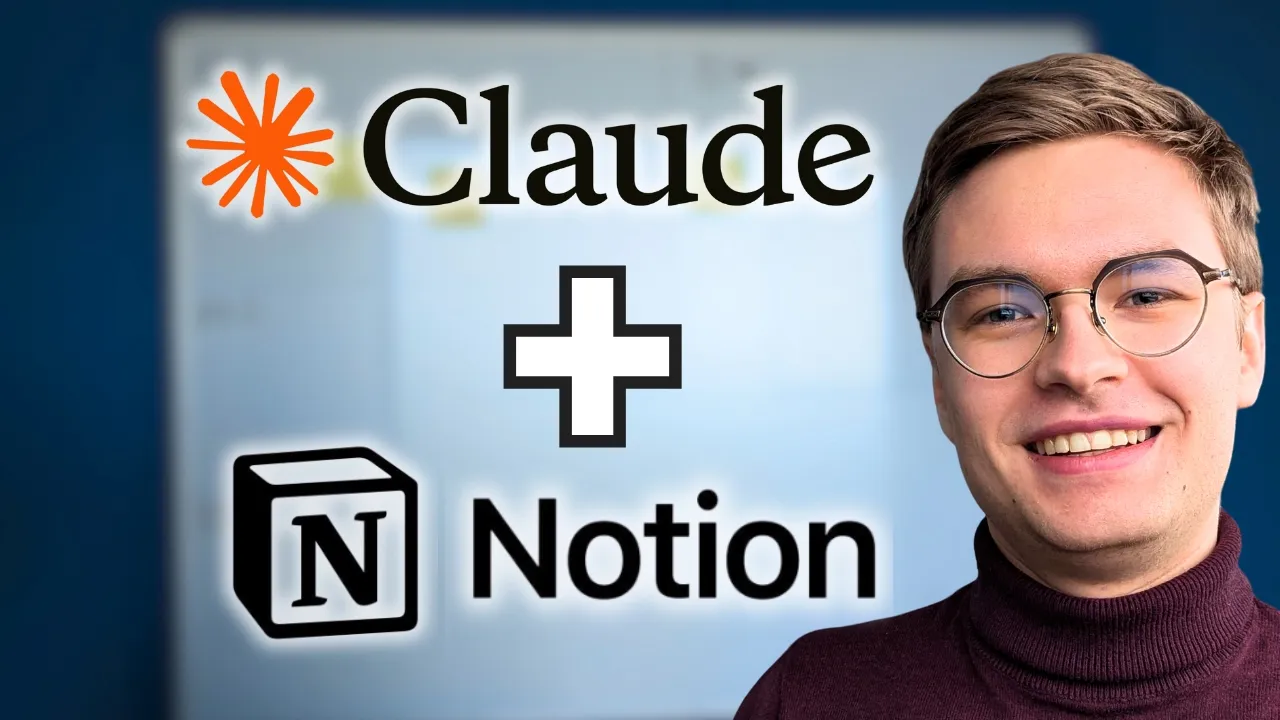The Second Brain Revolution
The concept of a “second brain” has become increasingly popular as digital tools have evolved to help us manage the overwhelming amount of information in my lives. Notion has long been at the forefront of this movement, providing flexible structures for organizing knowledge. However, a significant evolution is underway. AI integration is fundamentally transforming how we build and interact with these knowledge systems.
From Manual Curation to AI-Assisted Knowledge Management
Traditional second brain systems required meticulous manual setup and maintenance. Creating a comprehensive life management system in Notion typically involved hours of designing databases, establishing connections between information, and regularly updating content.
AI assistants have changed this paradigm. With tools like Claude integrated into Notion workspaces, users can now describe their organizational needs in natural language, and watch as complete knowledge systems materialize before their eyes. This shift from manual construction to AI-assisted generation represents a fundamental change in my relationship with knowledge management tools. If you’re looking to build your own comprehensive AI engineering career roadmap, understanding these AI-human collaboration patterns is essential.
The true power lies not just in automation, but in how AI understands and interprets human needs across various life domains. By comprehending the interconnected nature of our work, health, finances, and relationships, AI can create holistic systems that reflect how we actually live and think.
The Architecture of AI Understanding
What makes the AI-Notion integration particularly remarkable is the assistant’s ability to create sophisticated organizational structures without explicit instructions. When prompted to create a life management system, Claude doesn’t just generate random pages, it thinks strategically about major life domains and how they interconnect.
This demonstrates a profound understanding of human organizational needs. The AI recognizes that different aspects of life (task management, personal development, financial planning, health tracking, and relationship maintenance) require different database structures and approaches.
More impressively, these systems aren’t created in isolation. The AI establishes connections between these domains, reflecting how our lives actually work. A project in your work domain might connect to financial goals, which in turn relate to health objectives, all represented in an interconnected system. This kind of intelligent automation shows why AI agent development is becoming such a critical skill for engineers.
The Collaborative Intelligence Model
Perhaps most revolutionary is how this integration transforms the relationship between humans and their knowledge systems. Rather than being merely a set-and-forget automation, the AI-Notion integration creates a collaborative intelligence model.
As demonstrated in the video, users can work alongside the AI as it builds and populates the workspace. This real-time collaboration represents a new approach to productivity, humans providing direction and customization while AI handles structure and implementation.
The ability to make changes while the AI continues working in the background points to a new human-computer interaction paradigm. It’s less about issuing commands and more about co-creation, with both human and AI bringing their unique strengths to the table.
Beyond Organization to Insight
The most profound impact may be how this integration transforms Notion from an organizational tool to an insight-generating system. When you ask Claude to add a new book to your system, it doesn’t just create a new entry, it contextualizes the information within your existing knowledge framework.
This shifts the value proposition from merely storing information to making connections between ideas. As your second brain grows more comprehensive with AI assistance, it becomes increasingly valuable not just as a record of information, but as a network of interconnected knowledge. This concept parallels how vector databases store and retrieve information in AI systems, creating meaningful connections between data points.
Redefining Personal Knowledge Management
The integration of AI into Notion workspaces signals a fundamental shift in how we approach personal knowledge management. What once required significant technical skill and time investment is now accessible through conversation. This democratizes sophisticated knowledge management approaches that were previously available only to those willing to invest hours in setup and maintenance.
More importantly, it changes our relationship with our digital knowledge. Rather than serving as passive repositories, these systems become active participants in organizing our thinking and surfacing relevant information exactly when needed.
As AI assistants continue to evolve, we can expect this relationship to deepen further. The notion of a second brain may soon seem quaint, replaced by truly intelligent systems that not only store our knowledge but help us expand and apply it in unprecedented ways.
To see exactly how to implement these concepts in practice, watch the full video tutorial on YouTube. I walk through each step in detail and show you the technical aspects not covered in this post. If you’re interested in learning more about AI engineering, join the AI Engineering community where we share insights, resources, and support for your journey. Turn AI from a threat into your biggest career advantage!
